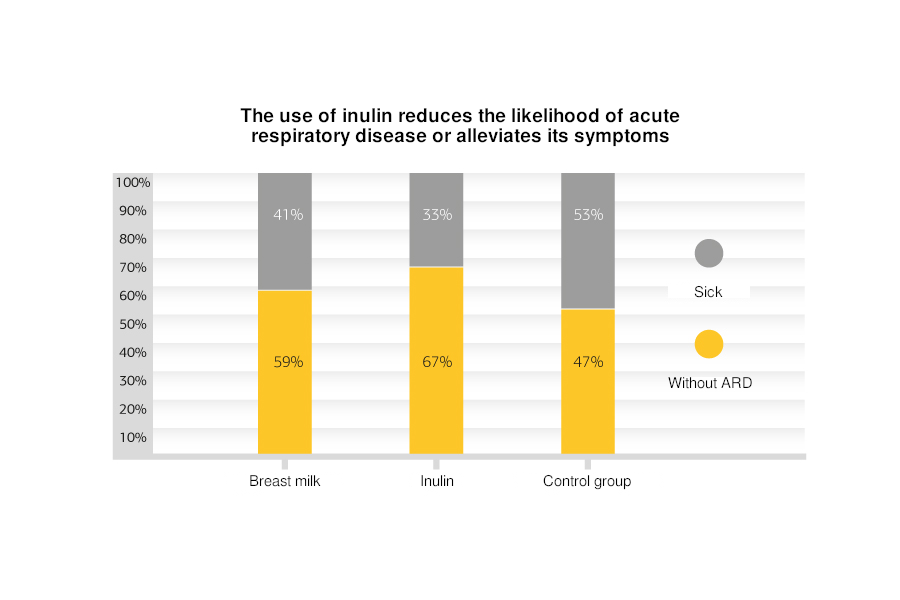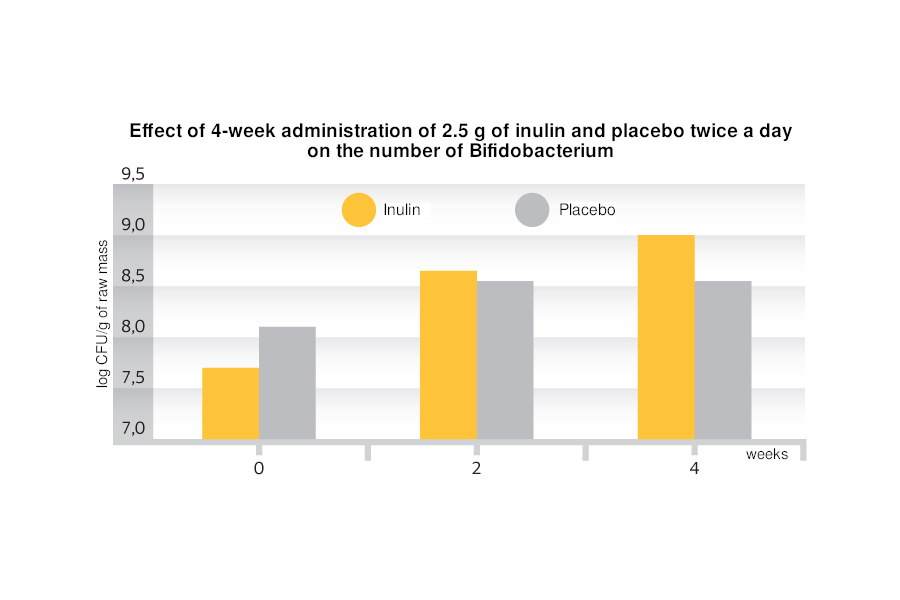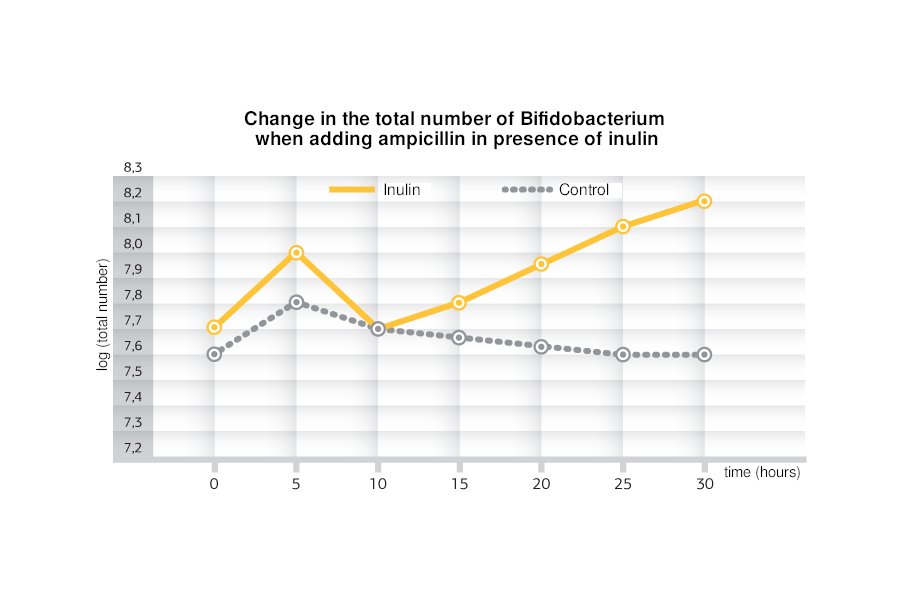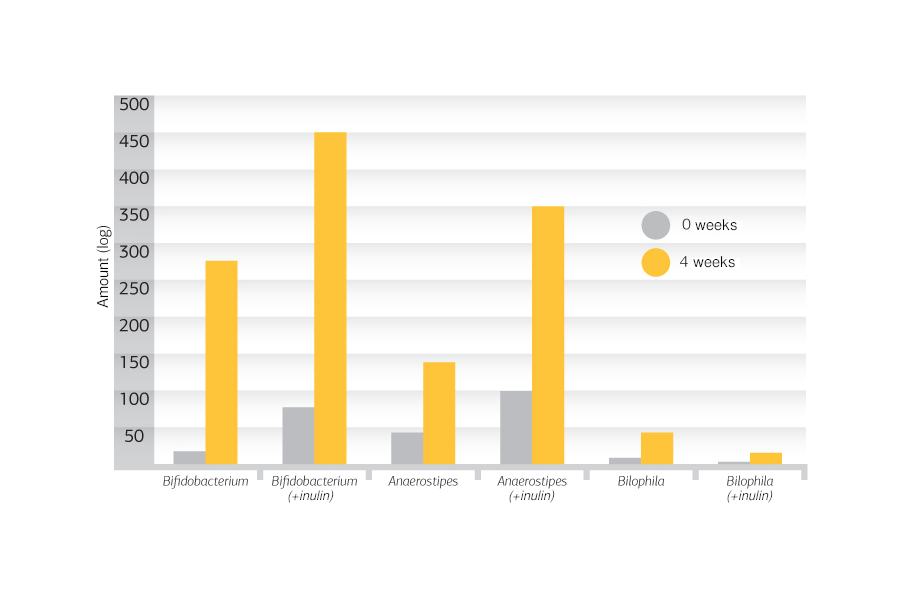Evidence base
Direct and indirect effects of Inulin on immunity
Since 2011 until 2014, the University of Padua compared 3 groups of children, aged 24-98 weeks, who were born by parents with allergic pathology in anamnesis at least at one child. Group No. 1 – 123 children, received only breast milk. Group No. 2 – 118 children, some were breastfed, others were artificially fed. Children in this group received Inulin. Group No. 3 (control) – 104 children, similar in composition to Group No. 2, did not receive Inulin.
Effect of Inulin on growth of normal flora
The quantitative and qualitative changes in normal intestinal microflora, violations of its antagonistic functions and other biological properties, as well as the reproduction of opportunistic microorganisms, which are absent in normal biocenosis or are its insignificant part, lead to intestinal dysbacteriosis.(1)
(more…)Antibiotic-associated diarrhea (AAD)
Taking into account the data available as of now, AAD can occur with frequency of up to 39% at people, who receive antibiotics. (more…)
Inulin-Neo™ is a selective prebiotic!
Inulin consumption increases the number of Bifidobacterium and Anaerostipes, with decrease in the number of Bilophila.




